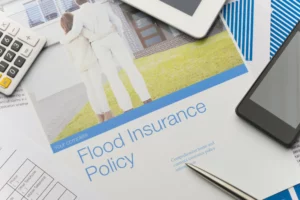Frequently Asked Questions About Motorcycle Insurance
Riding a motorcycle can be a thrilling and exhilarating experience, but it also comes with its fair share of risks. Motorcycle accidents can be particularly dangerous, and without proper insurance coverage, they can lead to financial ruin.
That’s why it’s essential to have motorcycle insurance to protect yourself, your passengers, and your motorcycle in the event of an accident.
- What is Motorcycle Insurance?
Motorcycle insurance is a type of insurance that provides financial protection for motorcycle owners in the event of an accident, theft or other types of loss. It typically covers damages to your motorcycle, as well as injuries or damages you can cause to others while operating your motorcycle.
- Do I need Motorcycle Insurance?
In most states, motorcycle insurance is required by law. Even in states where it is not required, it is highly recommended to have motorcycle insurance to protect yourself financially in the event of an accident or other unexpected losses.
- What types of coverage are available with Motorcycle Insurance?
Common types of coverage with motorcycle insurance include liability coverage, collision coverage, comprehensive coverage, uninsured/ underinsured motorist coverage, and medical payments coverage.
- What is Motorcycle Liability Coverage?
Liability coverage pays for damage or injuries that you cause to others while operating your motorcycle. This coverage is typically required by law and is essential for protecting your financial assets in the event of an accident. It also covers legal defense costs if you are sued because of the accident.
- What is Motorcycle Collision Coverage?
This coverage pays for the repair or replacement of your motorcycle if it is damaged or destroyed in an accident due to a collision, regardless of who is at fault.
- What is Motorcycle Comprehensive Coverage?
Comprehensive coverage pays for damages to your motorcycle that are not caused by the collision, such as theft, vandalism, fire, or natural disasters. This coverage is also optional but recommended for most motorcycle owners.
- What is Uninsured/Underinsured Motorist Coverage for Motorcycles?
Uninsured/underinsured motorist coverage pays for damages or injuries that you incur if you are in an accident with a driver who does not have insurance or one who doesn’t have enough insurance to cover your damages. This coverage is optional but recommended.
- What is Medical Payments Coverage for Motorcycles?
Medical payments coverage pays for medical expenses if you or your passenger are injured in an accident. This coverage is optional but recommended.
- How much Motorcycle Insurance do I need?
The amount of coverage you need depends on a number of factors, including the value of your motorcycle, your personal assets, and the level of risk you are comfortable with. It’s important to speak with an insurance agent to determine the appropriate amount of coverage for your specific situation.
- How are Motorcycle Insurance rates determined?
Insurance rates are determined based on a number of factors, including the make and model of your motorcycle, your age and driving record, your location, and the type and amount of coverage you choose.
- Can I get Motorcycle Insurance if I have a poor driving record?
Yes, you can still get motorcycle insurance if you have a poor driving record, but you may be required to pay higher premiums.
- How can I lower my motorcycle insurance premiums?
You can lower your motorcycle insurance premiums by maintaining a good driving record, choosing a higher deductible, taking a motorcycle safety course, and bundling your insurance policies with the same provider.
- What is the deductible on Motorcycle Insurance?
A deductible is an amount you pay out of pocket before your insurance coverage kicks in. Choosing a higher deductible can help lower your premiums, but it also means you will have to pay more out of pocket if you need to make a claim.
- What should I do if I am in an accident?
If you are in an accident, you should first make sure you and any passengers are safe and seek medical attention if necessary. You should also exchange insurance information with any other drivers involved and contact your insurance provider to report the accident.
- Will my insurance rates go up if I am in an accident?
Your insurance rates may go up if you are in an accident, especially if you are at fault for the accident. However, this can vary depending on your insurance provider and the circumstances of the accident.
- How can I save money on Motorcycle Insurance?
There are several ways to save money on motorcycle insurance, such as taking a motorcycle safety course, choosing a higher deductible, maintaining a good driving record, and bundling your motorcycle insurance with other policies such as auto or home insurance.
- How much does Motorcycle Insurance cost?
The cost of motorcycle insurance depends on various factors such as the type of motorcycle, the age and driving history of the rider, the coverage limits, and the location. On average, motorcycle insurance costs around $500 to $1,000 per year.
- Can I customize my Motorcycle Insurance Policy?
Yes, you can customize your motorcycle insurance policy based on your needs and budget. You can choose coverage limits, deductibles, and additional coverage options such as roadside assistance, personal injury protection, and accessories coverage.
- What happens if I am involved in a motorcycle accident?
If you are involved in a motorcycle accident, you should contact your insurance company and report the incident as soon as possible. The insurance company will investigate the claim and determine the coverage and amount of compensation you are entitled to receive.
- Should I cancel my Motorcycle Insurance in winter?
You may not choose to ride your bike at all in the cold winter months, but that doesn’t mean you don’t need protection. Whether you keep your bike in storage or at home, you’ll still need protection from things like fire, theft and damage (comprehensive coverage).
What you can do is remove the collision coverage if you plan on keeping the motorcycle in the garage. You’ll still need to maintain comprehensive coverage just in case anything should happen to the motorcycle while it’s garaged. If you happen to want to ride it, you’ll need to contact your insurance agent and ask them to put collision coverage back on the policy.
- Do I need to report an accident to the police?
You are only required to report the accident to the police if someone is injured in the accident or if it involves other vehicles, people’s property, cyclists, or pedestrians.
- What should I do if my motorcycle is stolen?
You are required to report the theft to the local police and proceed to inform your insurance agent of the incident. Your agent will require the information about what happened, and the insurance company will need the police report.
- What is the time frame for me to report an accident and what documents are required for accident reporting?
The rider involved in the accident must report it personally within 24 hours or the next working day. The accident must be reported to the police and your insurance agent or broker.
- What should I do if I receive a Letter of Demand/ Writ of Summons?
If you receive any Letter of Demand/ Writ of Summons from the other party relating to the accident, you should forward it to your agent or insurance company immediately. You should not negotiate, admit fault or offer payment to the other party.
- If I Cancel my Motorcycle Insurance Policy, do I get a refund?
If you paid for the policy in advance, you’ll be refunded any unused premiums by the insurance company.
- Are my motorbike tires covered under the insurance?
Your motorbike is not covered for any tire damage caused by punctures, cuts or bursts unless your motorcycle suffers the damage as a result of a covered accident/incident.
- I have just bought a new motorbike. Can I transfer my insurance from my old motorbike to this new one?
If you sell or permanently replace your motorcycle with another motorcycle, you’ll need to contact your agent or insurer so they can remove the old motorcycle. If you need to change any coverage for the new bike, you can do that as well.
- Do I have to pay my premium in full?
Motorcycle insurance premiums can be paid annually or monthly, although monthly is more common. Premiums are expected to be paid in full, but many insurers offer payment plans and discounts to help lower the cost of motorcycle insurance.
- Is my motorcycle trailer covered?
If you have a motorcycle trailer, it is not always automatically covered under motorcycle insurance. Motorcycle insurance policies vary and there are additional coverages for trailers. Simply ask an insurance agent about adding motorcycle trailer coverage to your policy.
- How can I find the right motorcycle insurance policy for me?
To find the right motorcycle insurance policy, it’s important to shop around and compare quotes from different insurance companies. You should also consider factors such as coverage amounts, deductibles, and discounts offered when making your decision.
Motorcycle insurance is an essential investment for any motorcycle owner. Don’t take unnecessary risks- make sure you have adequate motorcycle insurance coverage before you hit the road. For more information, you may contact or email ONYX Insurance Brokers for a free motorcycle insurance quote now




